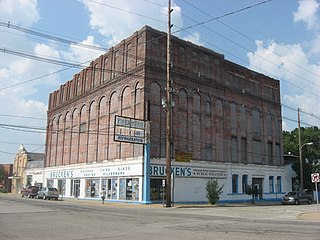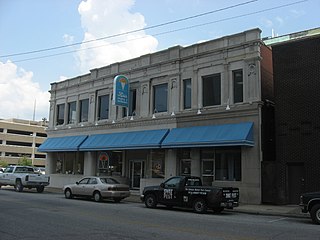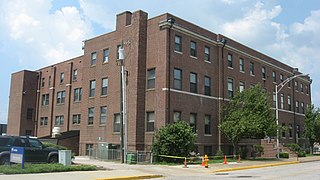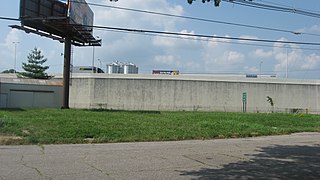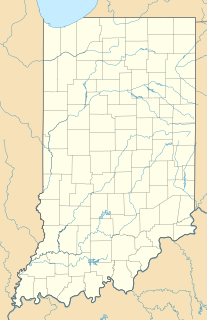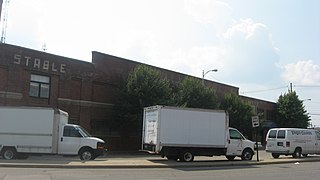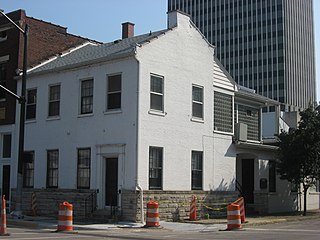YMCA | |
 Evansville YMCA, July 2011 | |
| Location | 203 N. W. Fifth St., Evansville, Indiana |
|---|---|
| Coordinates | 37°58′20″N87°34′31″W / 37.97222°N 87.57528°W Coordinates: 37°58′20″N87°34′31″W / 37.97222°N 87.57528°W |
| Area | less than one acre |
| Built | 1924 |
| Architect | Thompson, W. F.; Geary, B. G. |
| Architectural style | Tudor Revival |
| MPS | Downtown Evansville MRA |
| NRHP reference # | 82000128 [1] |
| Added to NRHP | July 1, 1982 |
YMCA is a historic YMCA located in downtown Evansville, Indiana. It was built in 1924, and is a five-story, Tudor Revival style yellow brick clubhouse on a raised basement. It features terra cotta detailing. [2] :Part 1, p. 25

The Young Men's Christian Association (YMCA), sometimes regionally called the Y, is a worldwide organization based in Geneva, Switzerland, with more than 64 million beneficiaries from 120 national associations. It was founded on 6 June 1844 by Sir George Williams in London and aims to put Christian principles into practice by developing a healthy "body, mind, and spirit".

Downtown Evansville is the central business district of Evansville, Indiana. The boundaries of downtown Evansville have changed as the city has grown, but they are generally considered to be between Canal Street at the south and east, the Lloyd Expressway to the north, Pigeon Creek to the northwest, and the Ohio River to the southeast south and southwest. Downtown Evansville is entirely within Pigeon Township.

Evansville is a city and the county seat of Vanderburgh County, Indiana, United States. The population was 117,429 at the 2010 census, making it the state's third-most populous city after Indianapolis and Fort Wayne, the largest city in Southern Indiana, and the 232nd-most populous city in the United States. It is the commercial, medical, and cultural hub of Southwestern Indiana and the Illinois-Indiana-Kentucky tri-state area, home to over 911,000 people. The 38th parallel crosses the north side of the city and is marked on Interstate 69.
It was listed on the National Register of Historic Places in 1982. [1]

The National Register of Historic Places (NRHP) is the United States federal government's official list of districts, sites, buildings, structures, and objects deemed worthy of preservation for their historical significance. A property listed in the National Register, or located within a National Register Historic District, may qualify for tax incentives derived from the total value of expenses incurred preserving the property.







